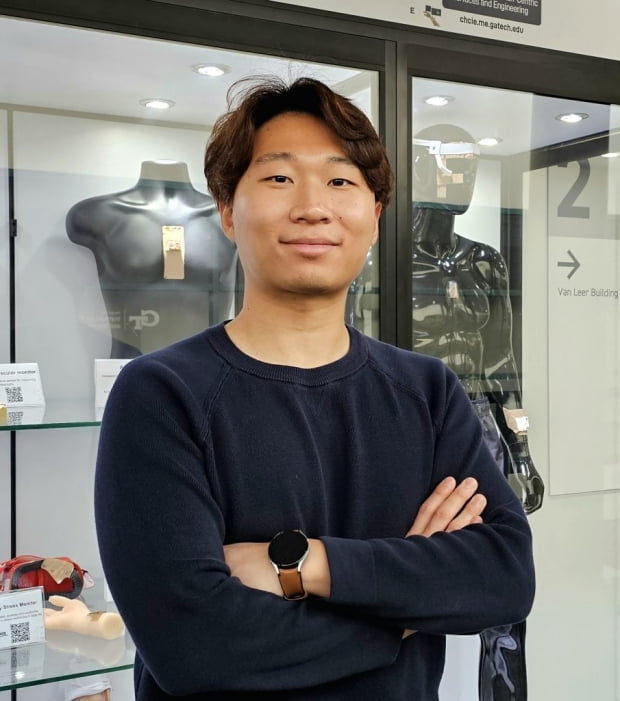WisMedical (CEO Lee Sung Hoon) announced on the 8th that it participated in the 'INtroduce Technology Demonstration' hosted by Inha University's Startup Support Group. WisMedical is a startup that develops devices that continuously and accurately monitor essential biometric information such as electrocardiogram, SpO2, electroencephalogram, electromyogram, and safety using soft wearable technology and diagnose them based on AI.
The first core technology of WisMedical is the 'soft' wearable device. Since the soft wearable device adheres closely to the skin, the gap between the skin and the device is small, so motion artifacts are hardly generated, allowing continuous and accurate measurement of biometric information even when walking, running, or going up and down stairs.
The second core technology is the sensor system and device design technology. Since one device can measure sound and electrical signals simultaneously, it can accurately obtain various biometric information such as SCG, ECG, auscultation, SpO2, body temperature, HR, and RR.
Lastly, it has a machine learning-based diagnosis and alarm system using continuously and accurately measured biometric data. The company explained that by participating in this 'INtroduce Technology Demonstration' and proceeding with the construction of GMP certification, it aims to make 'tedaid' the second time it has been revealed to many industry insiders and general consumers following CES.
CEO Lee Sung Hoon said, “While pursuing a Ph.D. in electrical and electronic engineering at Georgia Tech, I became more aware of the problems with current monitoring equipment, and I thought that if we commercialized it based on our world-class technology in soft wearables, it could change the lives of people in medical settings and patients with cardiopulmonary diseases. That’s why I started my own business, wanting to commercialize the devices we developed in the lab.”
He continued, “We will make sure that WisMedical’s technology is widely adopted in the future so that not only patient monitoring but also hospitals can become smarter. We will also provide patients with better monitoring technology and create a platform that can respond early.”
Entered 2024.03.08 11:29 Modified 2024.03.08 11:29
Hankyung.com Newsroom open@hankyung.com




